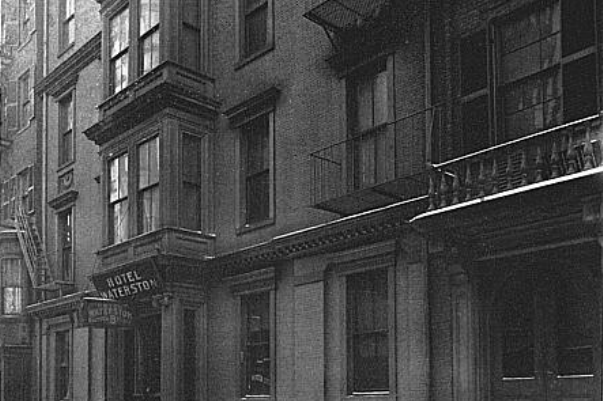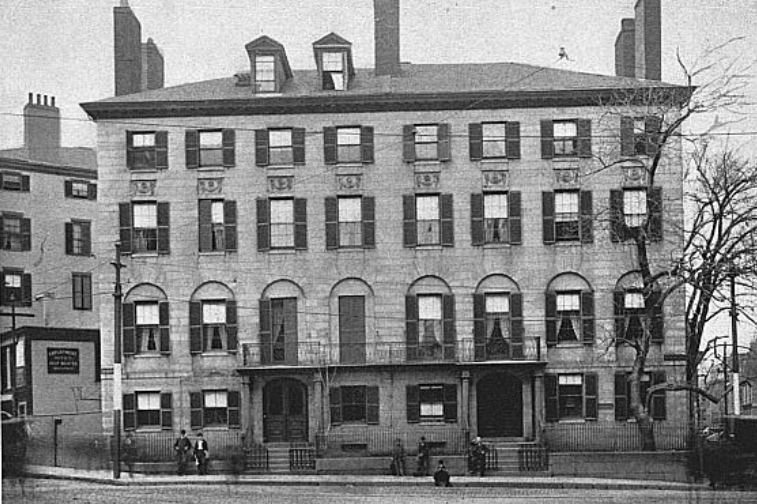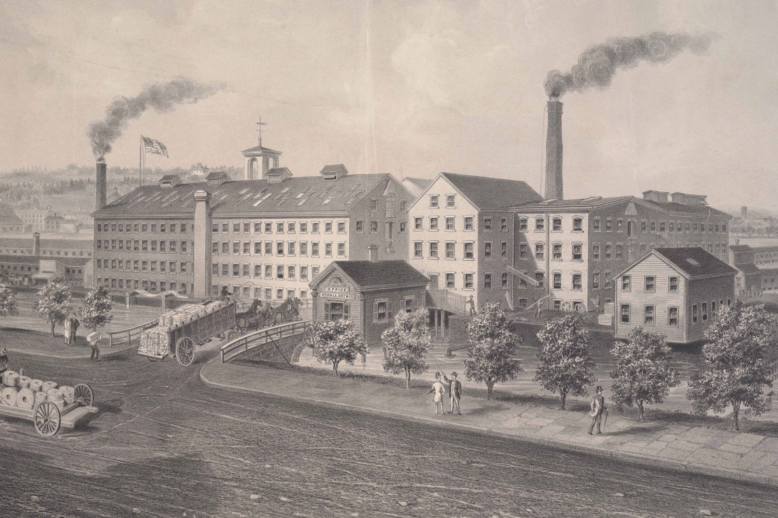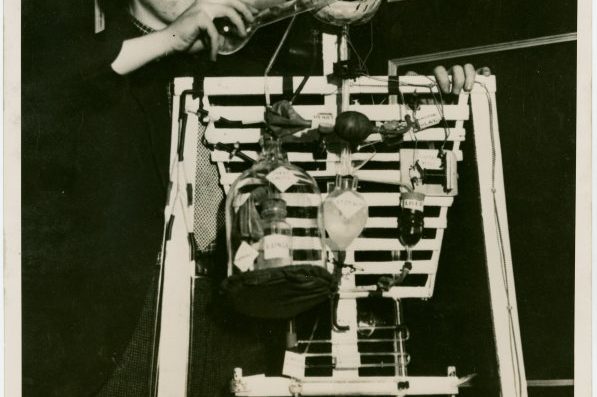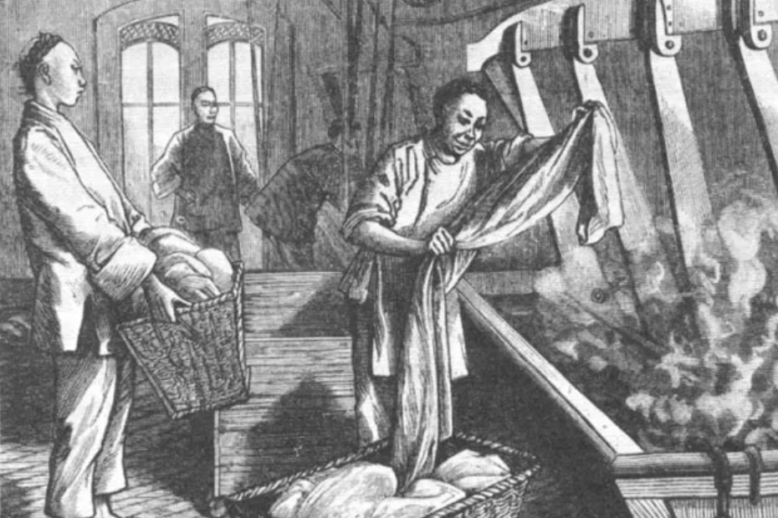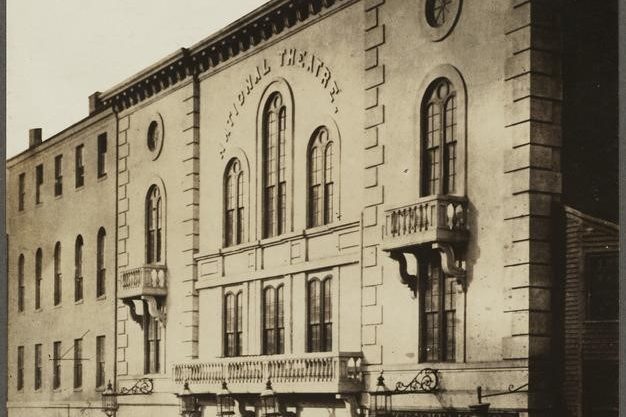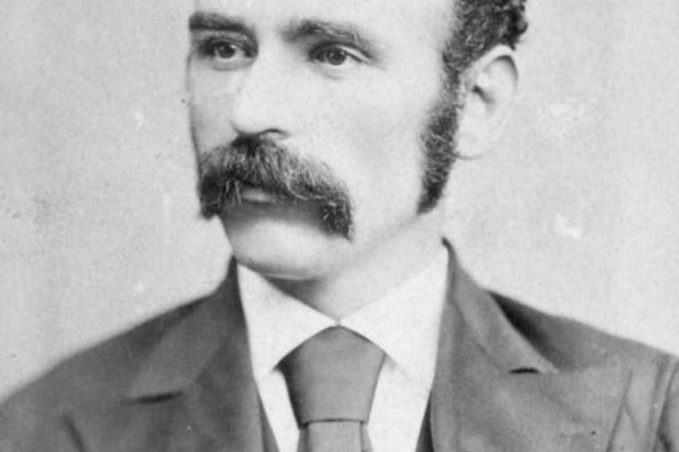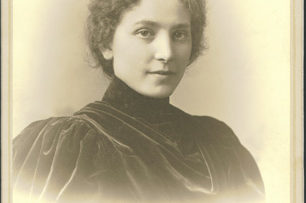Hotel Waterston
The Hotel Waterston, built in 1874 through a remodeling and expansion of the Charles Bulfinch House on 8 Bulfinch Place in the West End, maintained Bulfinch’s facade while adding additional stories. The Waterston had many prominent guests, including Walt Whitman, during the late nineteenth century, and the hotel stayed in business until it was demolished by urban renewal in 1961.


